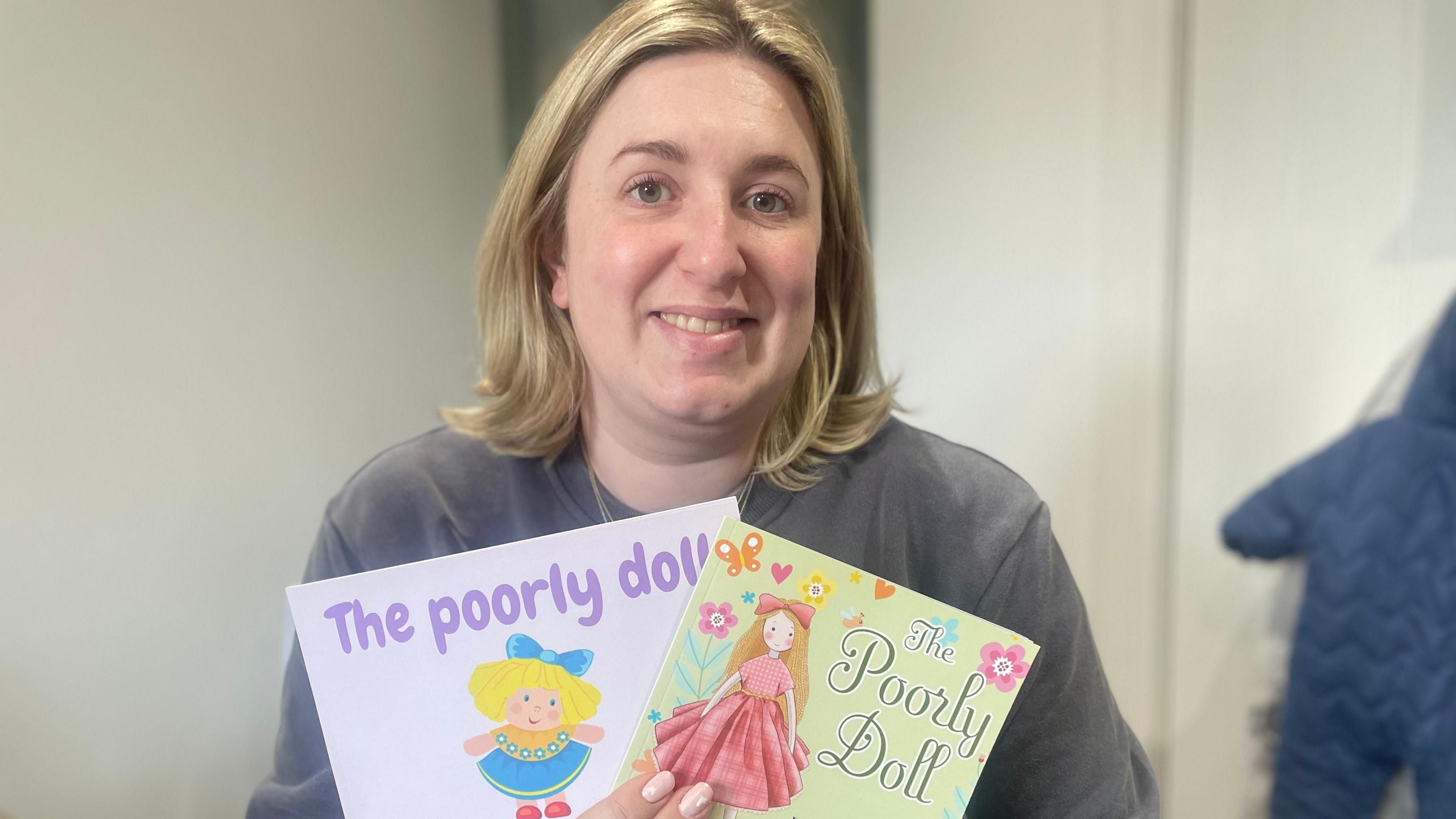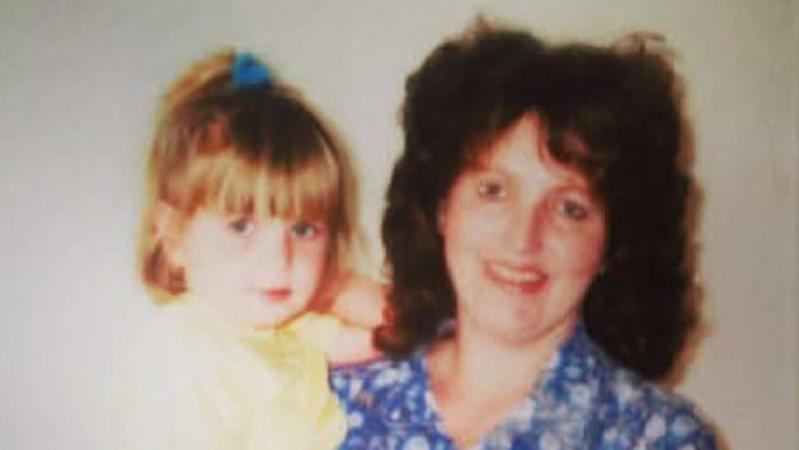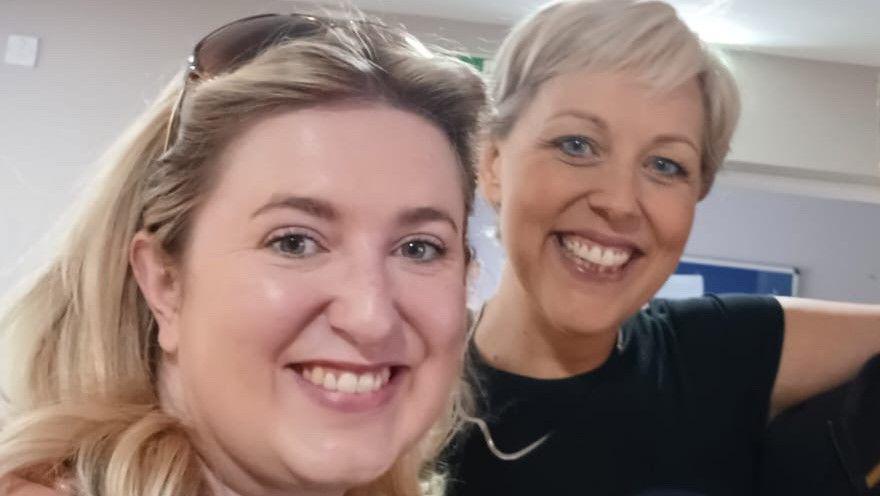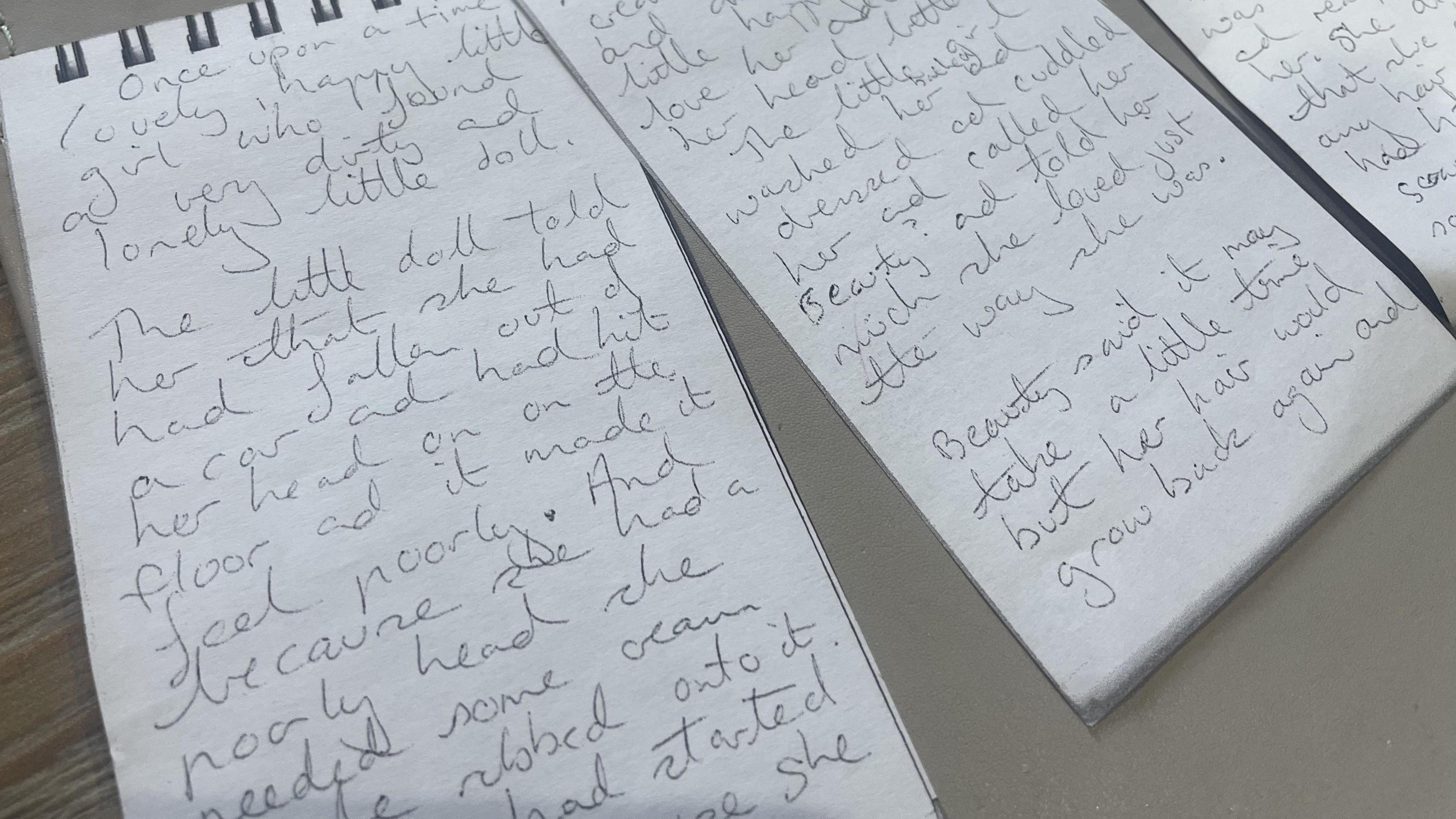'Doll story helped me understand mum's cancer'

Lauren Bolus-Jones has turned a story her mum wrote while undergoing cancer treatment into a book
- Published
While undergoing cancer treatment in the 1990s, one mum found a way to communicate what was happening to her toddler "the best way she knew how" - writing.
Debra Hanson-Bolus wrote The Poorly Doll to explain the effects of chemotherapy after she was diagnosed with breast cancer aged 33, when her daughter was one.
Debra died a couple of years after writing the story but 28 years on her daughter, Lauren Bolus-Jones, has had it professionally printed with the hope of helping others.
It was after growing close to another breast cancer patient who was struggling to tell her daughter what was happening to her that Mrs Bolus-Jones was inspired to share the story.
The 31-year-old, who lives in Radcliffe on Trent in Nottinghamshire, said she did not remember her mum but a collection of writings she left behind had helped to piece together stories of her life.
"I'd love to remember her saying 'I love you' and stuff but I don't need it because I feel it in all of her writings," she said.
Some of those are diaries which detail her pregnancy, her diagnosis which came shortly after, and her treatment.
But perhaps one of the most poignant of her writings was The Poorly Doll - the story of a doll that one day began to look unwell and started to lose her hair.

Debra Hanson-Bolus was an "avid writer", her daughter said
"She wanted to express herself and the only way she knew how to help was to be creative," Mrs Bolus-Jones said.
When she turned 21, Mrs Bolus-Jones tested positive for a variant of the breast cancer gene known as the BRCA gene, which gave her an 80% chance of developing breast cancer.
She was told hormonal changes such as getting pregnant could "trigger it" and subsequently underwent preventative surgery and reconstruction.
In 2023, Mrs Bolus-Jones learned her friend Claire had been diagnosed with breast cancer and was undergoing radiotherapy and chemotherapy.
The pair, who used to work together, "connected" over their experiences, with Mrs McLaughlin soon to go through the same surgery her friend had been through before.

Claire (left) said the story helped her explain to her daughter what was happening to her
Claire, whose daughter Bonnie was three at the time of her diagnosis, said she tried to protect her from what was going on.
"We [she and her husband] didn't really tell her about it - she was just too young to understand, so around Bonnie we just had to pretend like everything was OK but it wasn't," she told the BBC.
Then one day in September 2023 a book turned up on Claire's doorstep in Northumberland - it was The Poorly Doll.
In the parcel was also a letter from Mrs Bolus-Jones explaining that she had gone through her mum's belongings to find the story and typed it up for her.
"It was such a surprise. We still laugh about it because the minute I opened it and read it I rang her and she was at work and I was just crying down the phone at her," she said.
'Joy in a dark time'
The 38-year-old said she was at a point in her treatment when she was losing her hair and trying to hide it from her daughter by wearing wigs or headscarves - an element of treatment featured in the book.
"When I did decide to get rid of all my hair - because there was very little left - was a scary moment to think, 'is she going to be scared of me?' or think 'who's this? This isn't my mum that I know'," Claire said.
But the book taught Bonnie simply that her mum was going to the hospital to get medicine to help her get better.
She added: "Having that moment where Bonnie realised there was that connection with the story and her mum was so exciting for her and actually in such an unfortunate situation, I was just seeing so much joy in my daughter's face and it kind of lifted me in such a dark time."
Claire said her cancer eventually spread to her bones and she continued to undergo a tablet-based treatment for her incurable diagnosis.

Mrs Bolus-Jones kept the story her mother wrote among a vast collection of notes, diary entries and other writing
Seeing how much The Poorly Doll helped her friend, Mrs Bolus-Jones believed it would also help other parents facing a similar situation.
With Claire's support, she crowdfunded so she could get it professionally published.
Mrs Bolus-Jones said she planned to use the profits she makes to buy books to donate to charities.
Get in touch
Tell us which stories we should cover in Nottingham
Follow BBC Nottingham on Facebook, external, on X, external, or on Instagram, external. Send your story ideas to eastmidsnews@bbc.co.uk, external or via WhatsApp, external on 0808 100 2210.